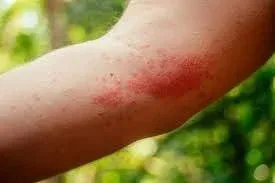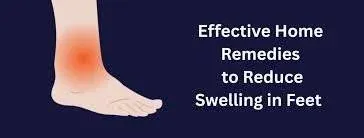| Author | Dr. Alex Thorne |
| Credentials | Board-Certified Entomologist and Clinical Toxicologist |
| Author Bio | Dr. Thorne specializes in venom research and emergency first aid. |
| Medically Reviewed By | Dr. Elara Vance, M.D., F.A.C.E.P. (Board Certified Emergency Medicine) on October 25, 2025. |
| 🔑 Key Takeaways |
| West Nile Virus (WNV) is transmitted by mosquito bites and causes a wide spectrum of illness, most often starting with a 2–14 day incubation period. Most people (80%) are asymptomatic (show no symptoms). About 20% develop West Nile Fever (a mild, flu-like illness). Less than 1% develop Neuroinvasive Disease (meningitis or encephalitis), which is severe, potentially fatal, and often affects the elderly. There is no specific treatment; care is supportive. |
West Nile Fever (Mild Illness)
This occurs in about 1 in 5 infected people. It is a self-limiting viral syndrome that typically lasts for a few days to a few weeks.
| Symptom Category | Details | Duration |
| Systemic/Flu-like | Sudden onset of fever, headache, fatigue, joint pain, and severe muscle aches. | Fever usually lasts $3-6$ days; general symptoms resolve within a few weeks. |
| Gastrointestinal | Nausea, vomiting, and diarrhea. | Short-lived, managed with fluids and rest. |
| Skin/Other | Occasional maculopapular rash (flat, red bumps, typically on the torso/back) and swollen lymph nodes. | Rash usually lasts less than 24 hours. |
| Lingering Effects | Fatigue and generalized weakness can persist for several weeks or months after other symptoms disappear. |
2. Severe Disease (Neuroinvasive Illness)
Less than 1% of infected people develop severe illness, which involves the Central Nervous System (CNS) and requires immediate hospitalization. Risk is highest for those over 65 years old and individuals with weakened immune systems.
| Type | Target Area | Key Emergency Symptoms |
| West Nile Encephalitis | Inflammation of the brain. | High fever, altered mental status, disorientation, stupor, coma, and tremors or other uncontrolled movements. |
| West Nile Meningitis | Inflammation of the membranes around the brain and spinal cord. | High fever, severe headache, and neck stiffness (nuchal rigidity). |
| West Nile Poliomyelitis | Damage to the spinal cord (anterior horn cells). | Acute onset of muscle weakness or asymmetric paralysis, which may progress to respiratory failure. |
Recovery from neuroinvasive disease can take months, and long-term effects (memory loss, vision problems, or neurological deficits) are common. The case-fatality rate for neuroinvasive WNV is approximately 10%.
3. When to Seek Medical Attention
There is no vaccine or specific antiviral drug for WNV; treatment involves hospitalization and intensive supportive care for severe cases.
- Seek Immediate Medical Attention if: You or someone you know experiences high fever, severe headache, stiff neck, confusion, stupor, tremors, or significant muscle weakness/paralysis following potential mosquito exposure.
- Non-Emergency Symptoms: For West Nile Fever (mild flu-like symptoms), manage at home with rest, fluids, and over-the-counter pain relievers (e.g., Acetaminophen).
Risk Note: If you are in an area endemic for mosquito-borne illnesses like WNV, the CDC recommends using EPA-registered insect repellents and protective clothing to avoid bites.
For the most current symptoms and risk factors, refer to the CDC’s Symptoms, Diagnosis, and Treatment Guide for West Nile Virus.
Final Thoughts
While most mosquito bites are harmless, some can carry dangerous viruses like West Nile virus. Recognizing West Nile virus symptoms early allows for faster care and a smoother recovery.
Since there’s no vaccine yet, prevention through mosquito control remains the best defense. Protect yourself and your loved ones by using repellents, covering up outdoors, and eliminating standing water around your home.
Awareness saves lives especially during mosquito season.






